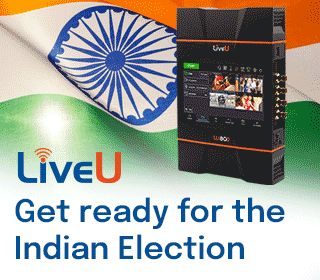Daily News
TRAI’s interference hurting broadcasting sector
The Telecom Regulatory Authority of India’s jurisdiction over broadcasters — in terms of how broadcasters must price, bundle and present their channels — adds to barriers and acts as an impediment to the sector, said experts.
Star & Disney India, which has been vocal against the TRAI’s interference in the television industry, is now seeking to end TRAI’s jurisdiction over broadcasters.
“While it is important to have a Government body or Ministry overseeing an industry, TRAI has been over-eager to interfere, which causes instability in the TV industry. This was particularly true in how the NTO 2.0 (New Tariff Amendment Order) was brought in even as the effects of NTO 1.0 were just about settling in. It is also difficult to understand why the TV industry comes under TRAI in the first place. It’s because TV channels need a licence to uplink, but surely this can be handled via the I&B ministry (Ministry of Information and Broadcasting) directly too,” Shailesh Kapoor, Founder and CEO, Ormax Media, a media consulting firm.
TRAI regulates how broadcasters must price, bundle and present their channels. “This is akin to a governmental body deciding how should a fashion brand price its collection and in which manner should the garments be sold in a fashion store or as absurd as a regulatory body putting a limit on the end price of all cars based on engine capacity,” said Giraj Sharma, founder-director of Behind the Moon, a brand consultancy.
Covid-19 effect
With advertising income coming under pressure due to Covid-19, the broadcasting sector is grappling with challenges.
“Even before the pandemic, the economic conditions were not too positive and the pandemic made it worse. In this climate, where investments are not happening, regulations and interventions by government agencies only adds to barriers. In my view, the industry should be left to market forces,” said Partho Dasgupta, Management Consultant and ex-CEO at Broadcast Audience Research Council (BARC) India.
Sony Pictures Networks India, Zee Entertainment Enterprises, Viacom18, ABP Network and Dangal TV did not respond to BusinessLine’s queries on the matter.
Balanced approach
The TRAI’s policies have eroded the bottom-lines of broadcasters, Sharma pointed out. With over-the-top platforms having gained prominence due to the pandemic, broadcasters need a regulatory body that works for their survival and is empathetic, while also ensuring that the viewer is not shortchanged, he opined. “That balanced approach is how one creates a good, healthy and transparent business environment and not by excessive policing,” said Sharma.
Star & Disney’s stance that the TRAI should not interfere with free-market operations of television channels, especially in the area of pricing, is a fair stance to take because other categories of entertainment like theatres, digital etc. don’t have Government price regulations, Kapoor pointed out. “TV companies are fearful that TRAI may bring in ad hoc changes to pricing at any time. It’s become a constant fear that they have to live with,” he cautioned.
Hurdle for investments
The regulations of TRAI, fraught with the challenges of the pandemic, can act as a hurdle in terms of attracting fresh investments, said experts. “Who would want to sink investments in such an environment where one is not certain of the price one can extract from a subscriber. There is so much uncertainty that it must be difficult for broadcasters to forecast revenues,” said Sharma. For instance, the TRAI has been changing its tariff orders for broadcasters at an exceptionally high frequency – close to 35 tariff orders in the last 15 odd years, he pointed out. And even when it itself had promised for a two-year moratorium on prices, new tariffs orders have been issued, he added.
Fresh investments will always be a challenge if the regulatory environment is not stable, said Kapoor. “TRAI may be trying to implement ‘consumer-friendly’ measures, but these are in fact, harming the industry and hence the consumer in the long run,” he added.
What will the end of TRAI’s jurisdiction over broadcasters mean for the industry?
The industry would simply flourish, according to Sharma. “We keep talking of ‘ease of doing business’ and ‘minimum government’ — we need to allow the market forces of a free market to decide which broadcaster thrives and allow them to extract a price they think they ought to get…All one has to do is to look at the declining service standards of telecom companies because the same regulator — the TRAI — decided to play the role of a consumer activist rather than allow market forces to play up in a free, fair environment,” he explained.
While it remains unclear if other broadcasters would also take similar initiatives in line with that of Star & Disney, Kapoor said that it would have been good to see the industry approach this matter together.
Queries e-mailed to the Chairman of TRAI seeking views on the criticism levelled against it by experts did not elicit a response at the time of going to press. The Hindu BusinessLine









You must be logged in to post a comment Login